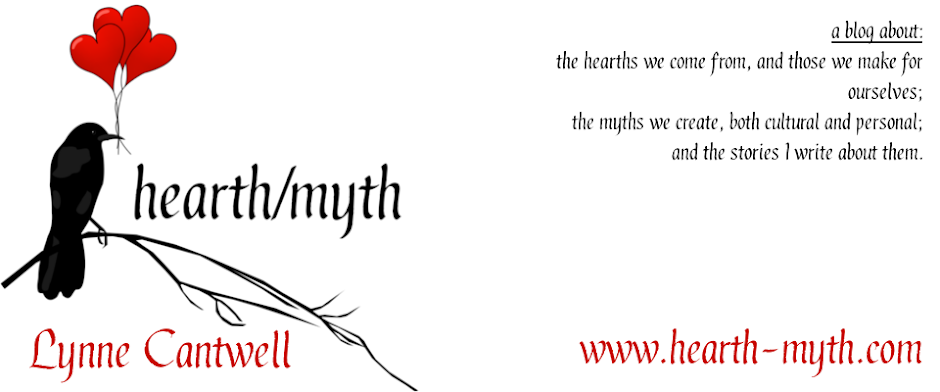 February 2nd is Imbolc, one of the cross-quarter days on the Neopagan calendar. Imbolc honors Brighid, who happens to be one of my matron deities. (Readers with a sharp eye might spot her in a supporting role in SwanSong. Hint: one of her other names is Brid.)
February 2nd is Imbolc, one of the cross-quarter days on the Neopagan calendar. Imbolc honors Brighid, who happens to be one of my matron deities. (Readers with a sharp eye might spot her in a supporting role in SwanSong. Hint: one of her other names is Brid.)You probably associate February 2nd with a different holiday -- one involving either a rodent snatched from his warm Pennsylvania burrow amidst great fanfare, or Bill Murray, or both. At one level, Imbolc and Groundhog Day have something in common: both observances are pegged to the midpoint of winter. Twelve weeks separate the start of winter at Yule (which was December 22nd on the East Coast of the US in 2011) and the start of spring at Ostara (which, this year, is March 20th). Halfway between the two dates, give or take a day, is February 2nd.
So that business about how, if the groundhog sees his shadow, we're in for six more weeks of winter? Hate to break it to you, but we get six more weeks of winter either way.
But Imbolc has a deeper meaning for Neopagans. In the British Isles, it's about the time when livestock began lactating in anticipation of the birthing season. So it's confirmation from the natural world that winter is half over and spring is on the way. It's also about the time when the sun begins coming up earlier, even though daylight has been lengthening in the afternoon for several weeks. (In December, the Capital Weather Gang posted a terrific piece about why that's so. I don't think I posted the link at Yule -- but even if I did, it's worth revisiting now that the days are getting longer, if only to see how far we've come!)
So what's the connection between Imbolc and Brighid? For starters, she is honored as a goddess of hearth and home, and as a healer, so childbirth comes under her purview. Given Imbolc's connection to lactation, you can see how that makes sense.
But the hearth also provides heat and light, and Brighid is a goddess of fire, connecting her to the returning light of the sun. For centuries, priestesses tended a perpetual flame at Brighid's shrine in Kildare, in Ireland. When Christianity took hold, responsibility for tending the flame fell to Catholic nuns until Henry VIII suppressed the monastery system in the 1600s and the flame went out. But in 1993, it was rekindled in Kildare. And it is tended all over the world in the traditional twenty-day rotation: nineteen people each take a day, and on the 20th day, Brighid tends the flame herself.
But that's not all. Brighid is also a patron of those who use the creative spark in their work -- of poets and bards, of shamans, and of smiths. She is also a goddess of crossroads. Because of all her talents, many Wiccans think of Brighid as a triple goddess, or as one face of a Celtic triple goddess. But I believe that a single goddess is capable of doing it all.
This Imbolc, I will light a candle for Brighid, and I will make a new Brighid's Cross to hang above our door. I'll thank her for her help and guidance this past year, and ask for her continued help in the year to come.
